Concrete Floor Preparation, Restoration & Resurfacing, Self-Leveling
Strong, customizable, and impact-resistant.
CONCRETE FLOOR PREPARATION CAN BE TEDIOUS WORK. AT MANHATTAN CONCRETE SYSTEMS WE COMBINE YEARS OF EXPERIENCE WITH AN AFFORDABLE PRICE TO PROVE YOU AN EXCELLENT VALUE.
We here at Manhattan Concrete Services know that proper preparation is a prerequisite to success in a flooring installation. Whether completing a simple re-pour or a completely new surface – on concrete, resin, or epoxy, we cut no corners to ensure perfection.
We are proud to be the areas most sought after concrete systems company, and we have the portfolio to show for it. We don’t cut corners or hurry through this critical step, and that leaves you with the perfectly prepped floor. For epoxies or other resinous products, our team is top-notch.
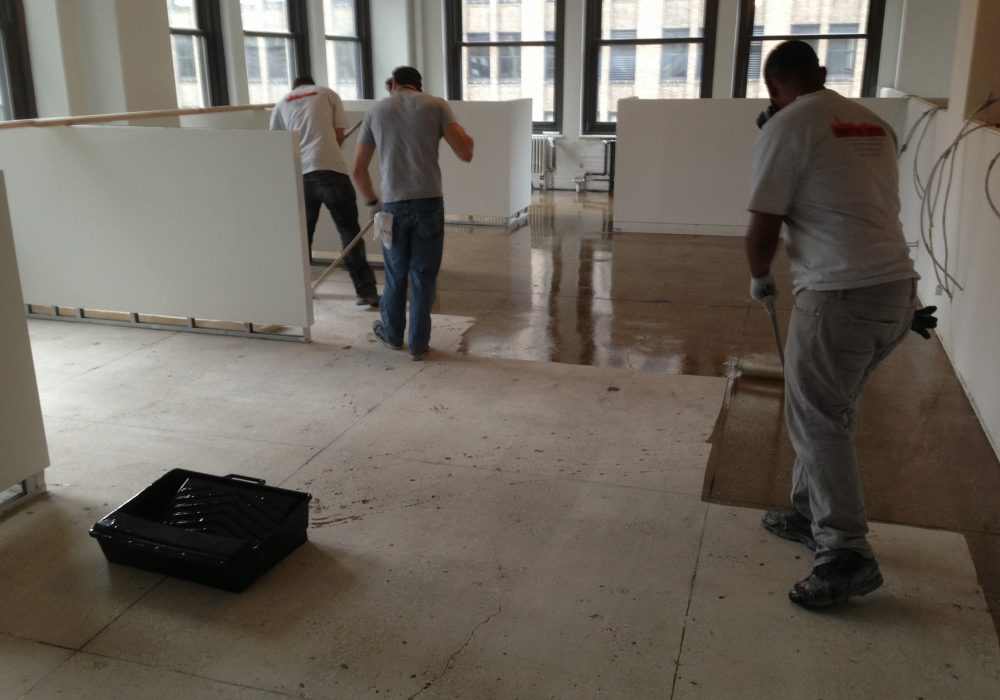
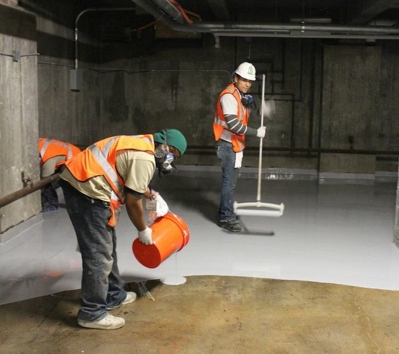
Proper Concrete Floor Preparation Is the Key
Getting ready for a new floor may seem like a simple process, but the reality is that it is a complex and challenging procedure that requires the right combination of expertise and attention to detail. That’s why hiring Manhattan Concrete Systems makes all the difference.
All floors are not created equal, and neither are all finishes or surfaces. It takes a vast amount of knowledge and experience to ensure success in this project. As luck would have it, we have both. We take care of imperfections so that you have the showroom-style floor you deserve.
Floors cay be pitted, chipped, or uneven. This situation requires more extensive preparation and more sophisticated craftsmanship. MCS can handle it.
Tried-and-True System
We start with a thorough examination of your existing floor. Then, after a meticulous inspection, we meet with you to review the preparation plan. We will go over each part of the process to be sure you can ask questions and understand what to expect.
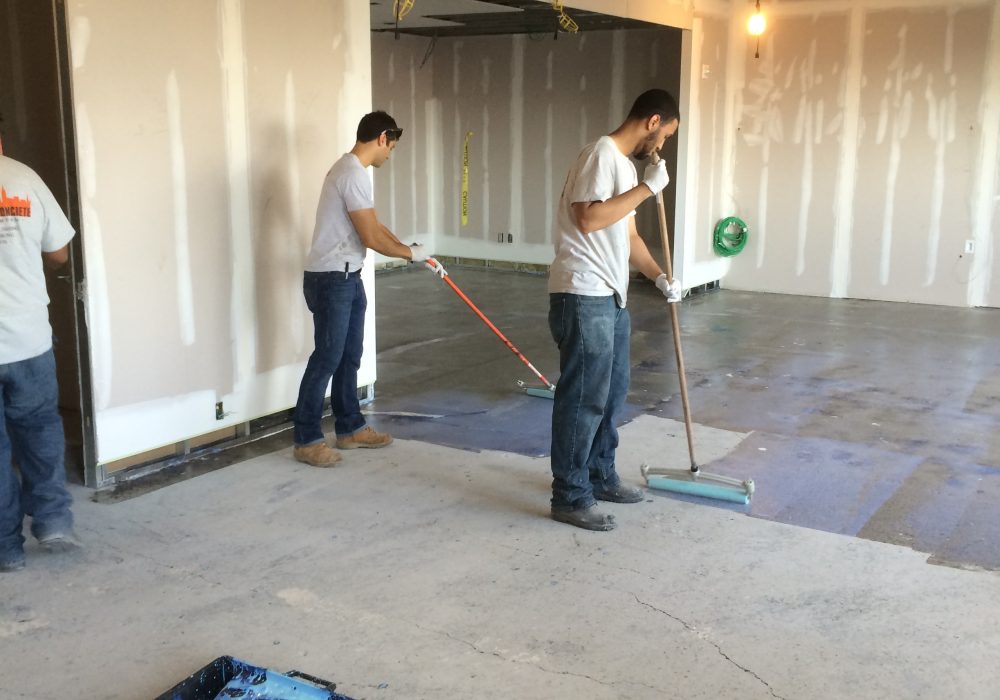
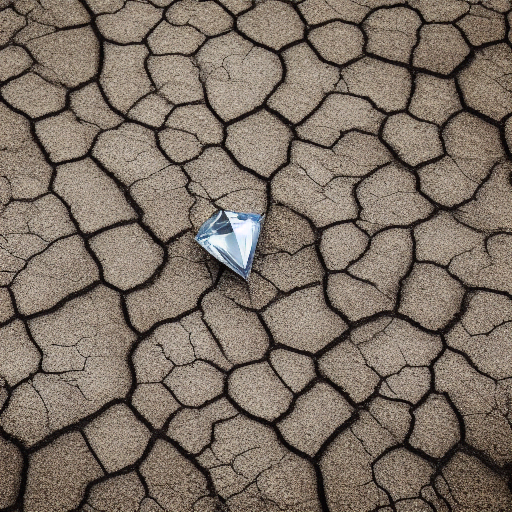
Laitance
Once we remove the excess material, sealant, or coating, we deal with the laitance. Laitance is weak concrete in unstable top layers. Our top-of-the-line diamond grinders will remove any unnecessary and troublesome layers.
Applications
Once we finish grinding, it’s time for any special applications the floor requires. This step is when we can adjust the concrete surface profile, or CSP. CSP is a measurement of the roughness of a concrete floor.
A smooth surface has a low profile number. A rough, bumpy surface has a higher number. To determine the correct CSP, we have to look at the type of coating or overlay. Attention to detail is critical in this step.
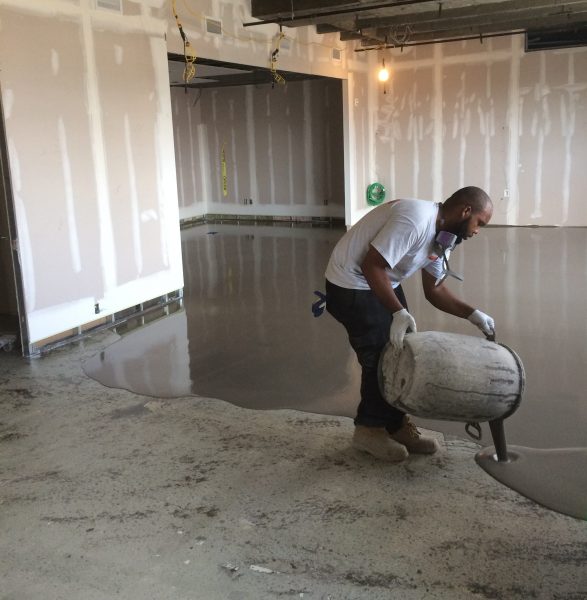
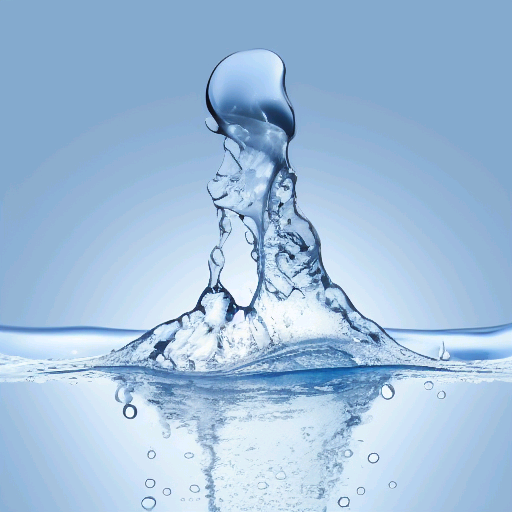
Moisture Sealant
Next up is the application of a moisture sealant. Using this polymer-based product will prolong the life and vitality of your floor. In fact, we offer a ‘grind and seal’ option for our customers, which makes the sealant the top-coat finish
Safety Considerations
We know that commercial and industrial floors need to have more than just an attractive finish. Safety is a significant consideration when it comes to our preparation. We use no-slip finishes that will help keep your safety record spotless. From runway models to hotel guests, our floors keep everyone on their feet.
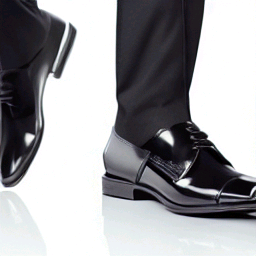
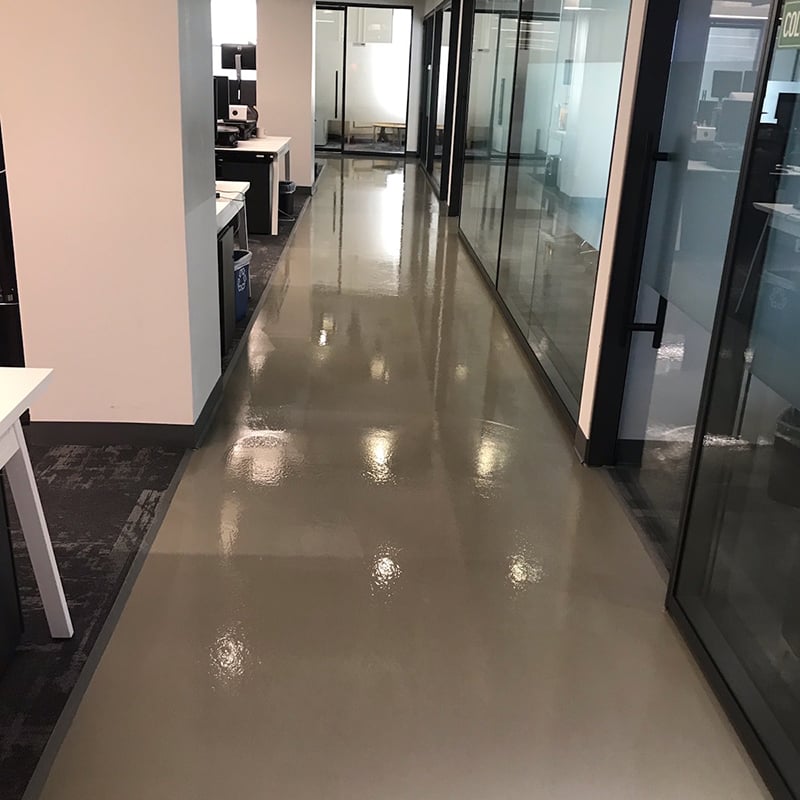
Polish
After the necessary scraping, grinding, and sealing, it’s time for us to polish. This process will also bring out the natural beauty of the floor. Nothing says NYC like a lustrous, shiny concrete floor.
Self-Leveling Concrete
Self-Leveling Concrete is a versatile, strong material that is used to make existing floors (sheet vinyl, vinyl composition tile (VCT), wood, ceramic tile and carpet) smoother, flatter, and stronger. This type of concrete is a polymer-modified cement that has high flow characteristics and comes in two forms: underlayment and overlayment. MCS uses the most advanced concrete floor leveling systems and is committed to providing the best self leveling concrete services in New York.
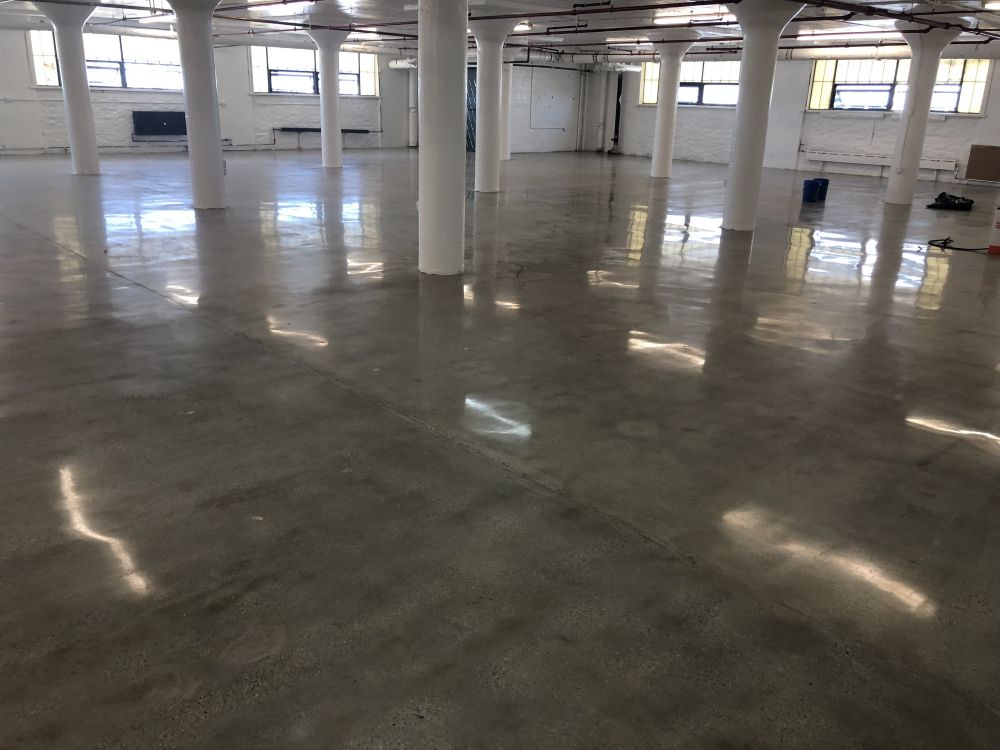
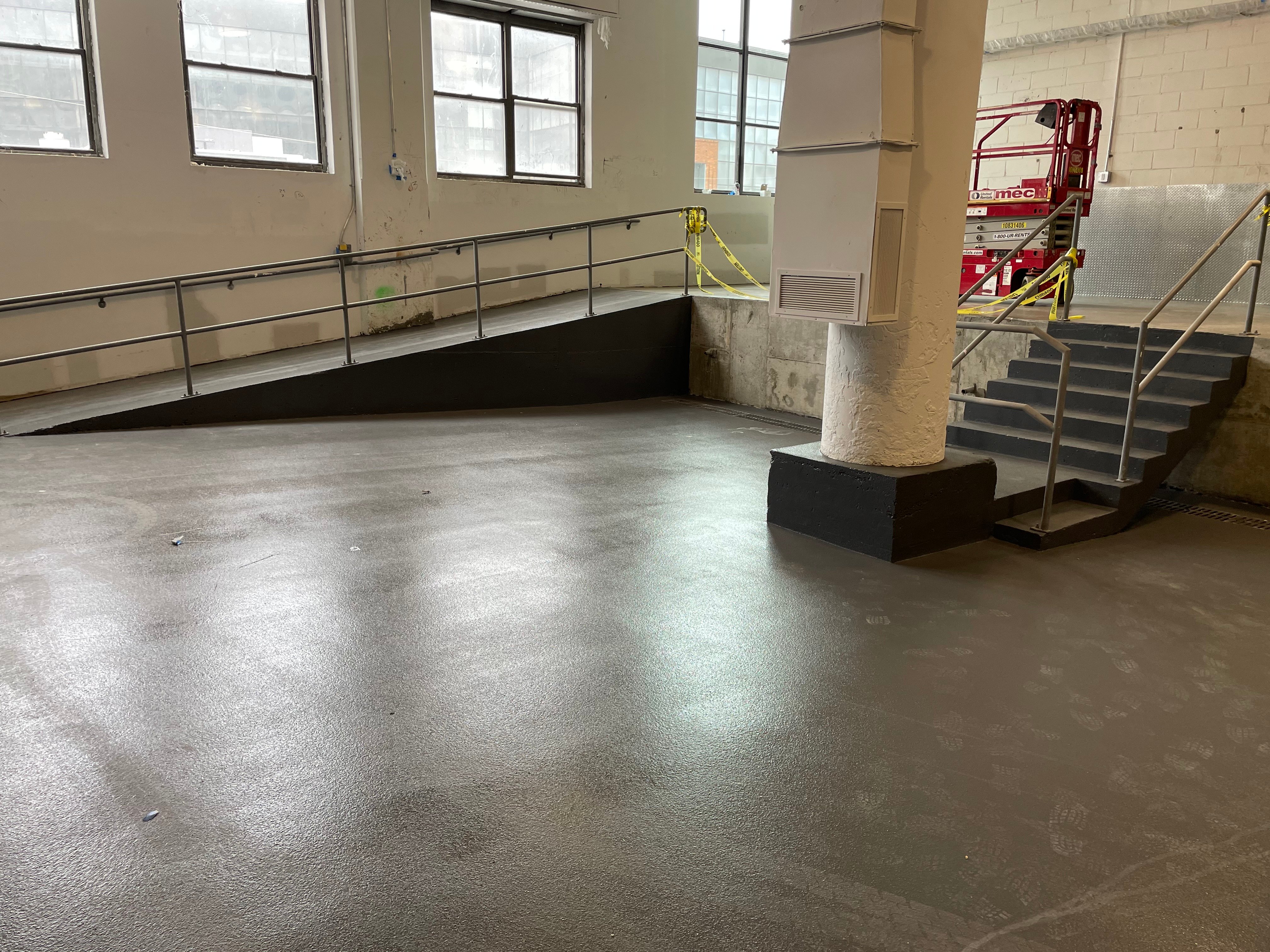
Self-Leveling Underlayment - Smooth and Correct Floors
Underlayment material is used to level uneven, grooved, and/or heavily pitted floors in order to make them stable, flat and suitable for installation of sheet vinyl, vinyl composition tile (VCT), wood, ceramic tile, hardwood or carpet. Underlayments may vary in depth from feather-edge to depths of 2 inches or more.
Self-Leveling Underlayment - Smooth and Correct Floors
Underlayment material is used to level uneven, grooved, and/or heavily pitted floors in order to make them stable, flat and suitable for installation of sheet vinyl, vinyl composition tile (VCT), wood, ceramic tile, hardwood or carpet. Underlayments may vary in depth from feather-edge to depths of 2 inches or more.

Typical Applications
Correct Uneven Floors
Achieve a "level" floor with minimal height variations and higher compressive strength.
Provide Smooth Surface
Provide a smooth surface for carpet, tile, or other floor installations.
Repair Damaged Concrete
Are your floors worn down? Self leveling concrete can be used to make repairs and bring your floors back to life.
Advantages of Using Self-Leveling Concrete
- Self-leveling concrete can be laid on top of any non-flexible surface, such as wood, ceramic tile, LVP, or plywood.
- Self-leveling concrete dries very quickly. This allows for a quick turn around.
- It creates a smooth surface that is also very strong, which makes self-leveling concrete an excellent candidate as an underlay for other types of floorings.
- It can even be used as a stand alone flooring option.
- Self-leveling concrete is stronger than normal concrete, which means it can be used for reinforced concrete construction.
- Self-leveling concrete is very unlikely to cause allergic reactions, which is why Manhattan Concrete services offers MICROPEL® antimicrobacterial concrete flooring.
- Self-leveling concrete also does not require the addition of water, which makes it more resistant to mold growth than regular concrete.
It is also highly viscous, so it does not need to be spread with a trowel.
Disadvantages of Using Self-Leveling Concrete
- Self-leveling concrete does not reinforce the underlayer on which it is laid on top of. If anything happens to the subfloor, the self-leveling compound can loosen, break up, and cause damage.
- Self-leveling concrete also dries really quickly. The drying period can take as little as 20 minutes. so there is no time to mess around!
- It can splash onto materials and permanently stain them since the mix is very aqueous.
- Self-leveling concrete does not stick well to a subfloor with any substances on it, so it must be wiped completely clean beforehand.
Not all Jobs Are DIY
Laying Self-Leveling Concrete can be a risky job, especially with how quickly it dries. Don’t risk the way your floor will look. Our team of certified professionals can transform any surface into something you can be proud of. Contact MCS to get this job done the right way the first time.